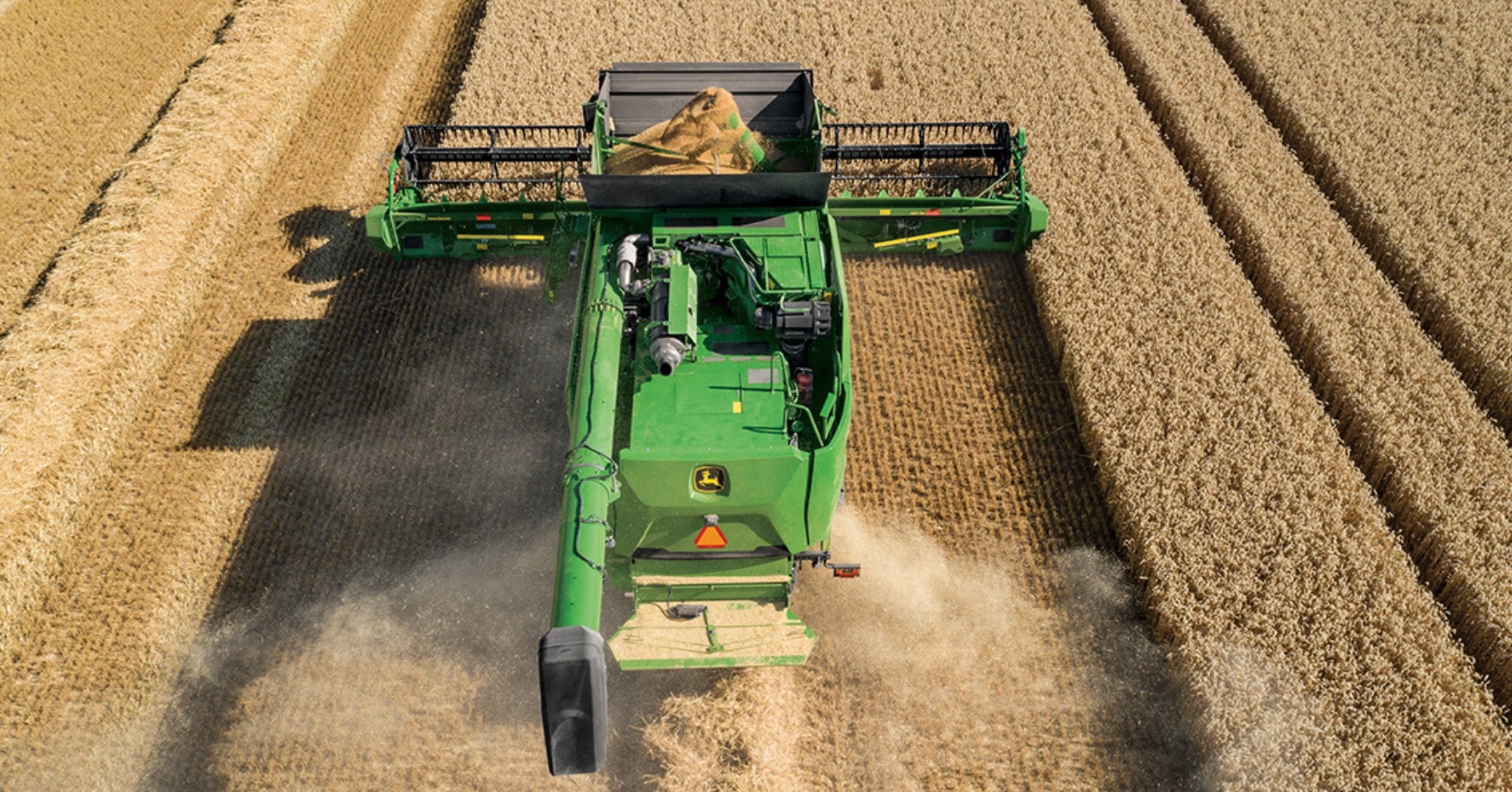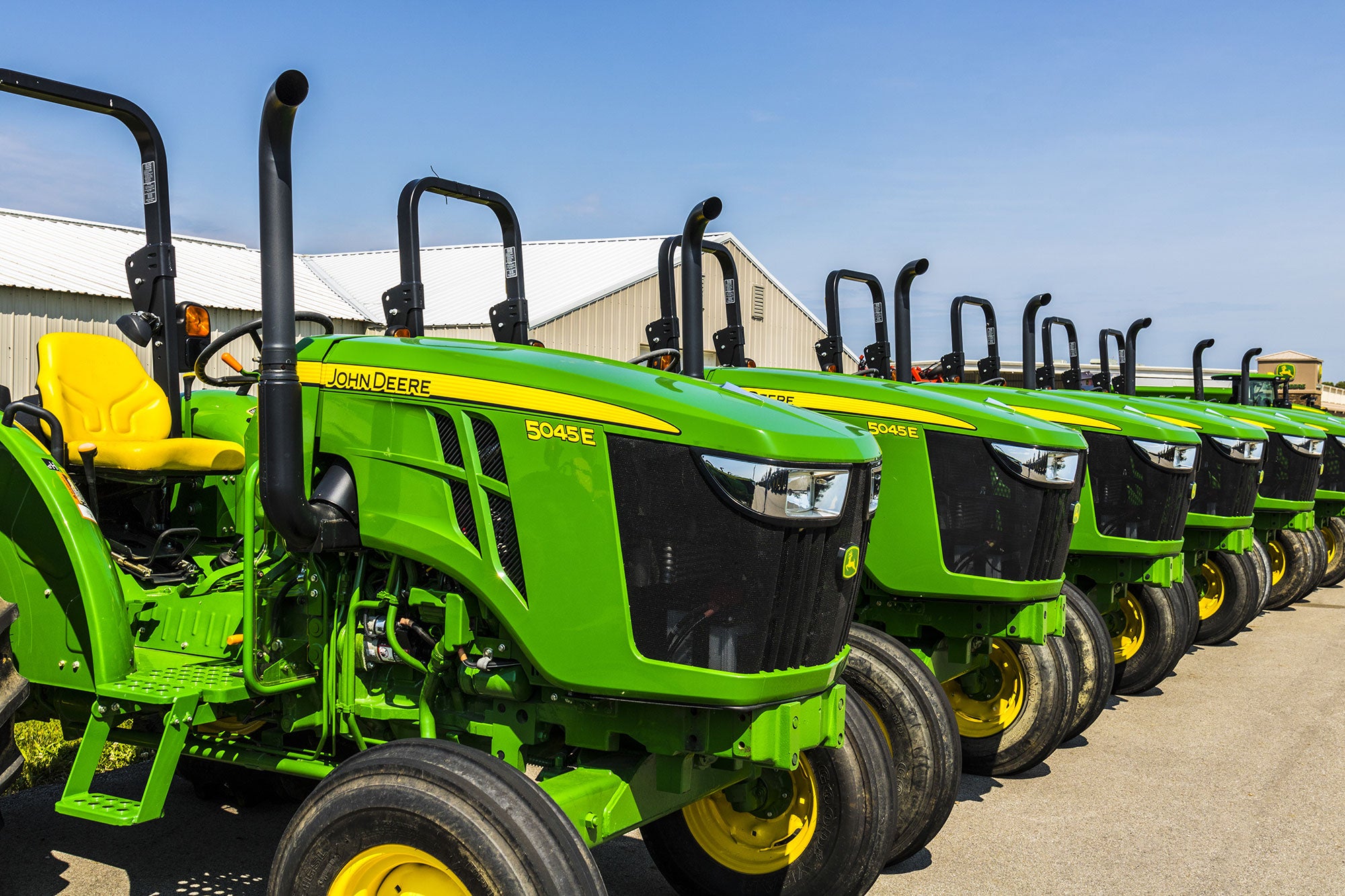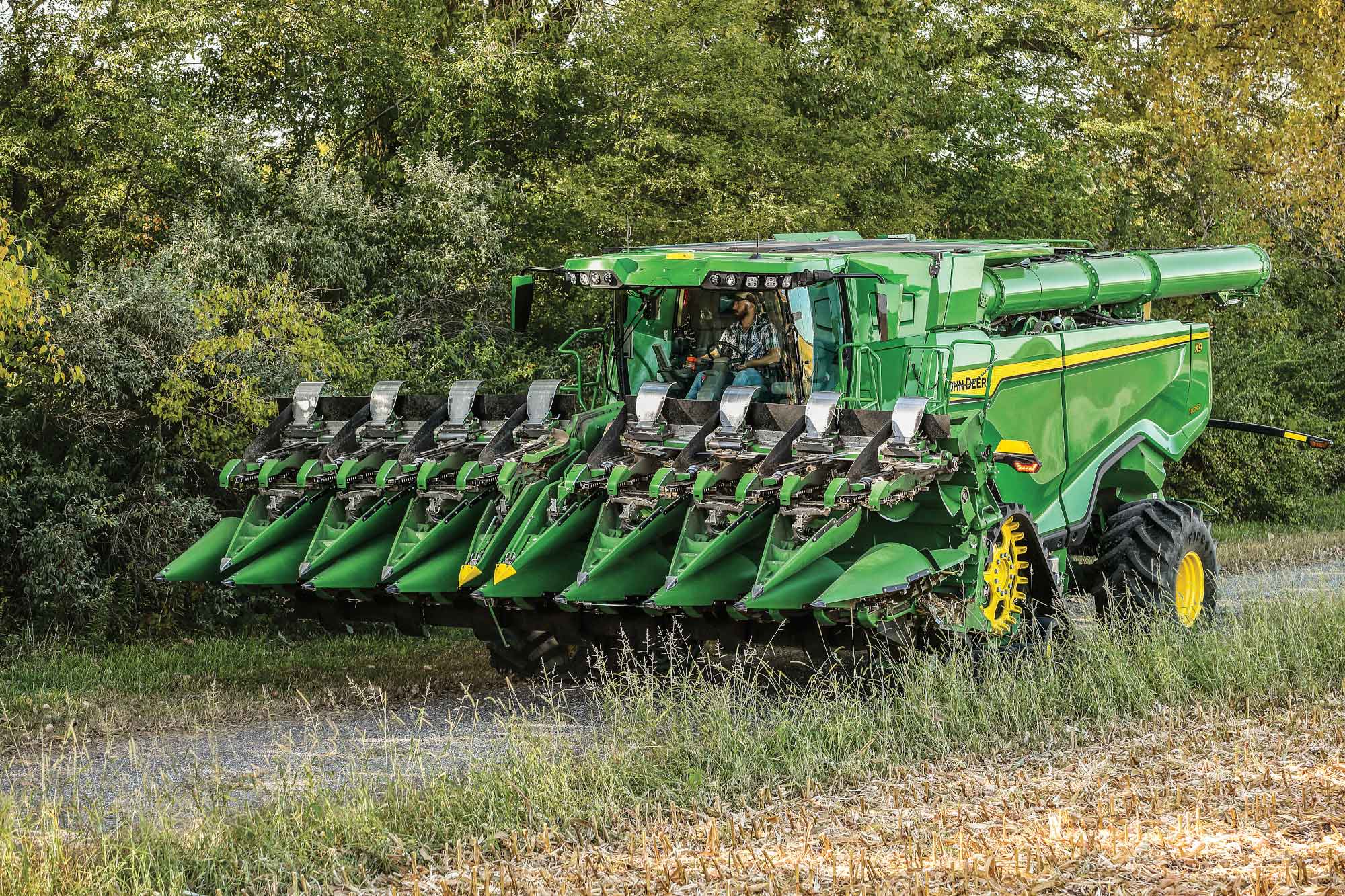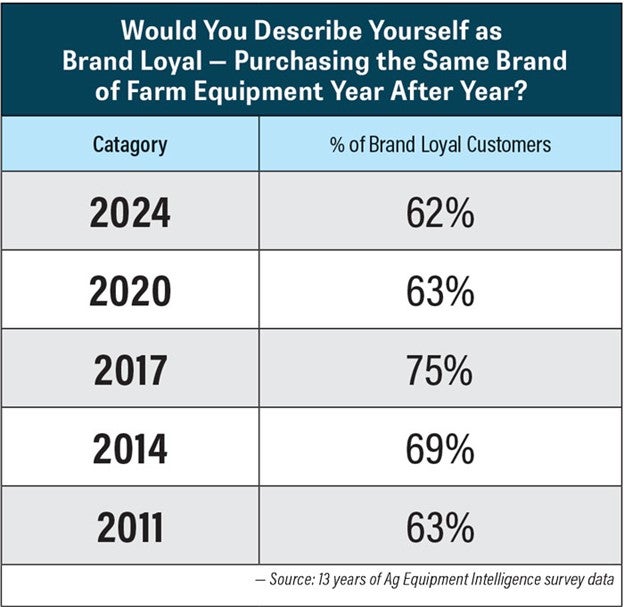CLAY COUNTY, Indiana — Judging from the headlines, one would think John Deere’s clout was eroding among farmers. They’ve ominously said things like, Is John Deere’s Day of Reckoning Soon at Hand? and This Is How John Deere Robs Farmers of Billions of Dollars.
Yet, when looking at the machinery manufacturer’s overall financial reporting, the numbers suggest just the opposite. At home on their operations, farmers themselves largely appear to continue their loyalty to one of the oldest brands in the U.S., even if a bit grudgingly.
Front and center in recent months is the ongoing litigation facing not only Deere & Company but other manufacturers in terms of “right to repair” policies and allegations of monopolistic behavior. In addition to Deere, the federal government has filed separate cases against several other major agricultural companies over allegations of monopolistic activities. Because of how Deere is such a household name, however, it gets the most buzz across the industry.
Couple that with several rounds of layoffs over the past year, the talk of moving more and more of the production to Mexico, and the summer 2024 change in its diversity and inclusion policies, Deere has faced unquestionably heavy levels of scrutiny.
Chatter across social media platform like Reddit to YouTube has many protesters prophesying about doom for the big companies and the loss of “brand equity,” and yet there are gobs of farmers who just don’t seem to be that moved by the complaints.
Both Scott Rubek and Conrad Koehler of Clay County, Indiana, independently, said there may be some elements of John Deere that frustrate them and their peers, but they’re still on Team Green.
“We’re pretty much exclusively John Deere,” Koehler said, noting that’s unlikely to change.
Plenty of farmers feel this way — but it’s also very likely that there are many who do not.

Background and context
Culturally, there’s a reason for the relationship between the manufacturer and its clients. To some, Deere & Co. represents the last of its kind as an American-born company still bearing the founder’s name. You may even see a city kid wearing a John Deere hat at the county fair. The man John Deere was born in 1804 in Rutland, Vermont. In 1836 he and others from his community moved to Grand Detour in Illinois where he opened his own shop and soon developed a new steel plow with a highly polished surface to answer farmers’ complaints about cast-iron plows sticking in the dirt. Formally incorporated in 1868, the now 157-year-old company is senior to nearly every major manufacturing competitor and synonymous with American farming.
Other names, and frankly, their dealerships, have come and gone over the years, like the lineup of Ford Motor Co. tractors. John Deere has also branched out from farming equipment to lawncare and heavy construction machinery. Irrespective of what comes down the pike, many farmers in the field retain their faith that John Deere won’t disappear any time soon, leaving them without service.
The stock price bears that out. On March 27, 2025, the company’s stock was $481.53 per share, compared to $135.11 on the same day in 2020. The present market cap is about $130.69 billion. And to that degree, it towers over the present lineup of competitors, with Case IH now owned by CNH Industrial NV owning a market cap of $15.79 billion, Massey Ferguson now owned by AGCO at $7.3 billion, and the Japanese firm Kubota at $14.99 billion.
And one the reasons it’s become the largest manufacturer of farm equipment, and one of the largest serving the construction industry, is its whopping 2,285 dealership base.
Simply put, for many long-time John Deere customers, it’s going to take a lot to get them to completely switch brands. For ag producers, switching brands means having to completely rework their service agreements and perhaps buy multiple units. No other brand has the same number of dealerships, or access to parts and service, irrespective of the pricing that goes along with. All that is woven into its lengthy history.

The green roots run deep
Rubek is a partner in Allied Insurance Agency specializing in the agricultural businesses, formerly served as an auctioneer for Big Iron Auctions, and also is an owner-operator of his own Clay County, Indiana, family farm.
In following the allegations against Deere & Company, he said his opinion is that a lot of the issue is overblown and simply part of the trend in ag-technology. Because pickup trucks and automobiles in general have become more computerized and authorization codes are often required, you have to take them to a specialist to have their diagnostics analyzed. Phones, tablets, and all things hooked to the Internet require a subscription, and to that degree, farming is heading in the same direction.
Meanwhile, he said John Deere and Caterpillar have the best parts network in the country, and he can source parts even for his own 1969 John Deere with next-day convenience.
Koehler, a sixth-generation member of Koehler Family Farms, acknowledged there are some frustrations with the trends at present, but overall, he’s happy with John Deere and is still a supporter of the brand. As manufacturing companies get bigger and techier, that’s just the way the future is going to be, he observed. Likewise, there are fewer choices in seed companies when you consider the parent companies, and the narrowing of competition isn’t just in agriculture, but across the board.
“I can’t say I’m a big fan of the subscription model when I’m already paying big bucks up front,” he said, adding he understands that’s just part of doing business now if you want more technologically advanced machines.
Koehler said his farm’s John Deere equipment includes a 9200, 8530, and 8259R tractors, as well as an X9 combine, and a corn and bean planter.

One of the big upsides to using John Deere equipment he said is that they’re easy to source parts for, and repairs done there at the farm just require an easy-to-find manual. To that degree he notes that the company isn’t explicitly denying farmers the right to repair the machines, farmers just don’t have the ability to work on the more sensitive sensors and computerized elements without the necessary equipment.
Both Koehler and Rubek expressed doubts that farmers would be able to afford to purchase all of that diagnostic equipment anyway.
Loyalty surveys show strength remains
Loyalty among John Deere customers has remained strong over the years, as farmers continue to identify with their brand. In a 2024 survey conducted by Ag Equipment Intelligence (AEI), surveyors found that 67 percent of John Deere Customers considered themselves “brand loyal,” which was down 10 percent compared to 2017, but still higher than Case IH customers (65 percent), AGCO customers (54 percent), and 52 percent of New Holland users.
This is part of an overall trend toward in willingness to shop around found across the board.

Given the sheer number of dealerships and ease of access to parts, there’s little evidence to suggest that Deere & Company will be drying up any time soon, no matter what social media or the talk at the corner gas station suggest.
Brian Boyce is an award-winning writer living on a farm in west-central Indiana.



